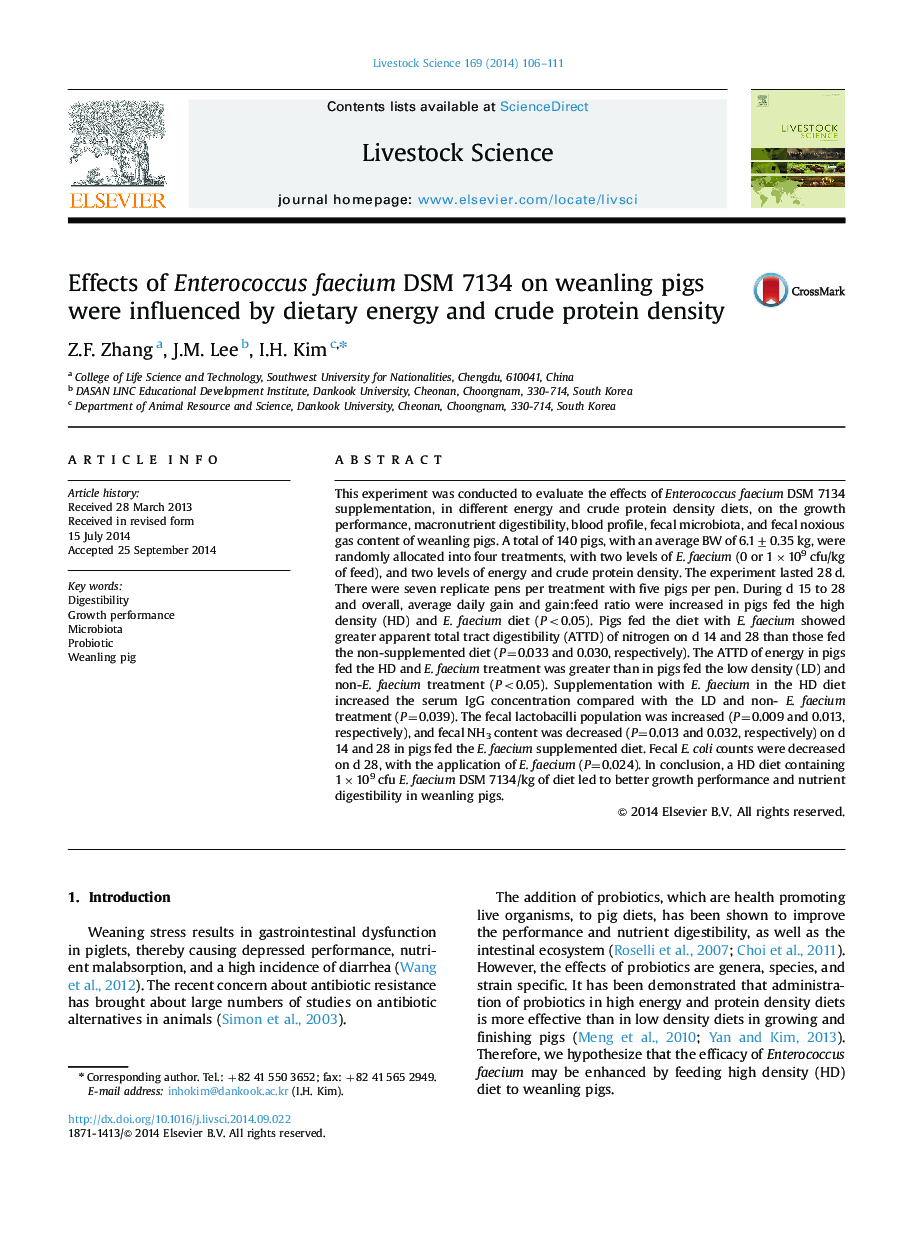| Article ID | Journal | Published Year | Pages | File Type |
|---|---|---|---|---|
| 5790138 | Livestock Science | 2014 | 6 Pages |
Abstract
This experiment was conducted to evaluate the effects of Enterococcus faecium DSM 7134 supplementation, in different energy and crude protein density diets, on the growth performance, macronutrient digestibility, blood profile, fecal microbiota, and fecal noxious gas content of weanling pigs. A total of 140 pigs, with an average BW of 6.1±0.35 kg, were randomly allocated into four treatments, with two levels of E. faecium (0 or 1Ã109 cfu/kg of feed), and two levels of energy and crude protein density. The experiment lasted 28 d. There were seven replicate pens per treatment with five pigs per pen. During d 15 to 28 and overall, average daily gain and gain:feed ratio were increased in pigs fed the high density (HD) and E. faecium diet (P<0.05). Pigs fed the diet with E. faecium showed greater apparent total tract digestibility (ATTD) of nitrogen on d 14 and 28 than those fed the non-supplemented diet (P=0.033 and 0.030, respectively). The ATTD of energy in pigs fed the HD and E. faecium treatment was greater than in pigs fed the low density (LD) and non-E. faecium treatment (P<0.05). Supplementation with E. faecium in the HD diet increased the serum IgG concentration compared with the LD and non- E. faecium treatment (P=0.039). The fecal lactobacilli population was increased (P=0.009 and 0.013, respectively), and fecal NH3 content was decreased (P=0.013 and 0.032, respectively) on d 14 and 28 in pigs fed the E. faecium supplemented diet. Fecal E. coli counts were decreased on d 28, with the application of E. faecium (P=0.024). In conclusion, a HD diet containing 1Ã109 cfu E. faecium DSM 7134/kg of diet led to better growth performance and nutrient digestibility in weanling pigs.
Related Topics
Life Sciences
Agricultural and Biological Sciences
Animal Science and Zoology
Authors
Z.F. Zhang, J.M. Lee, I.H. Kim,
